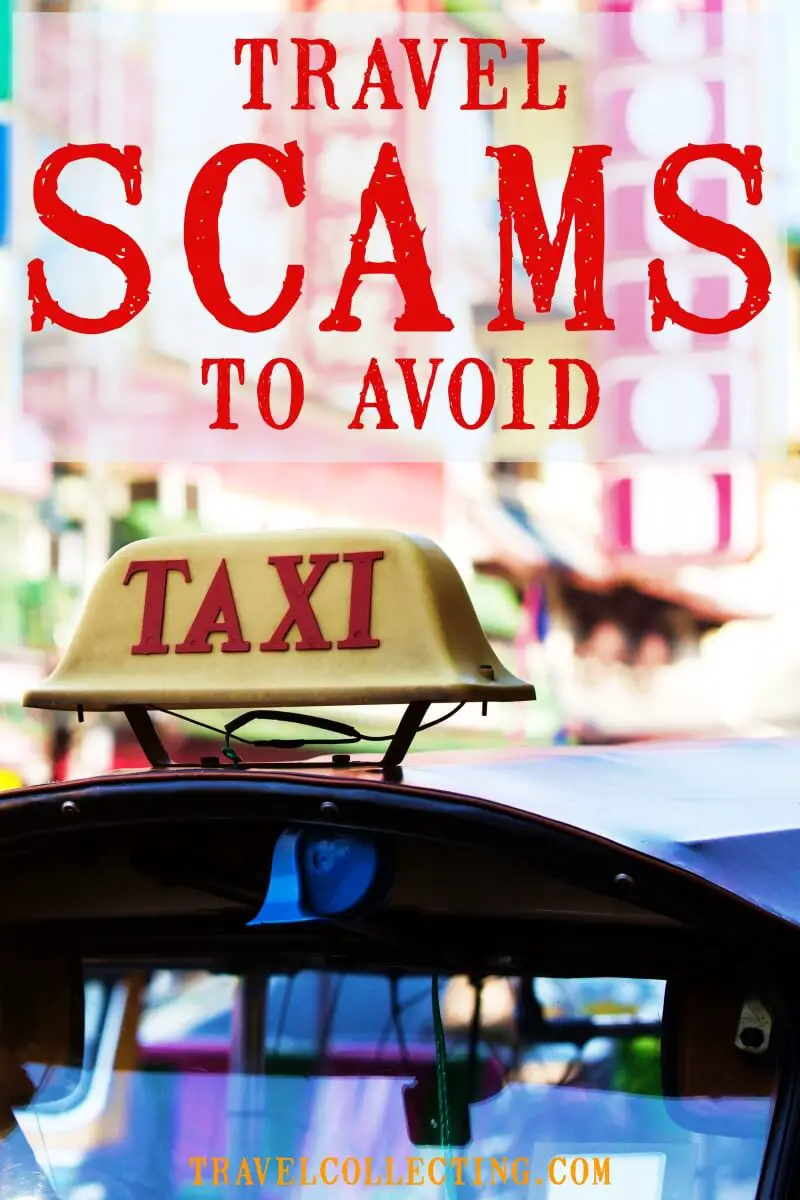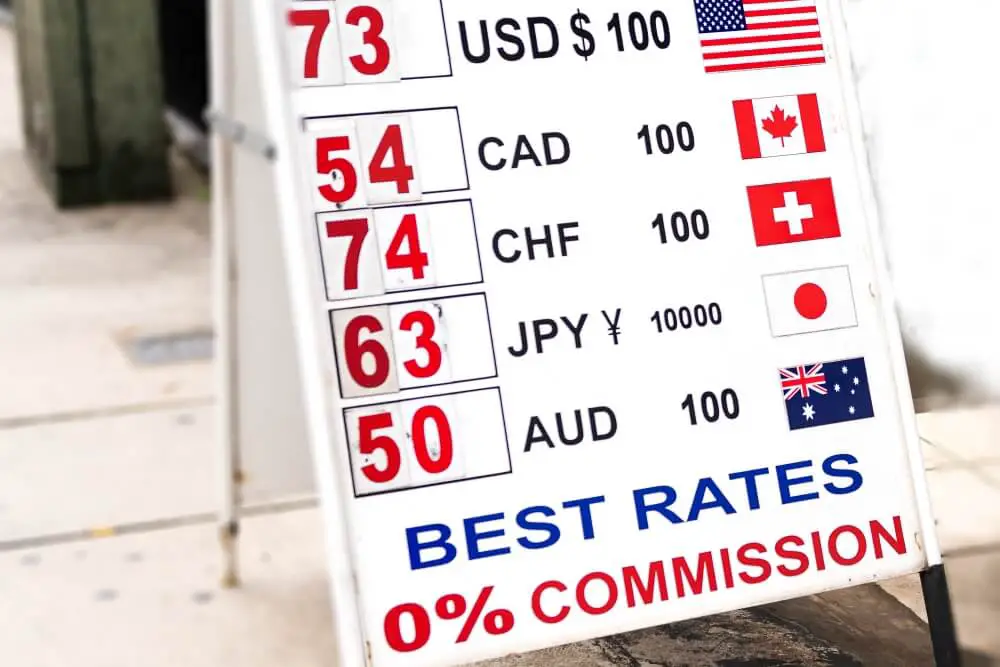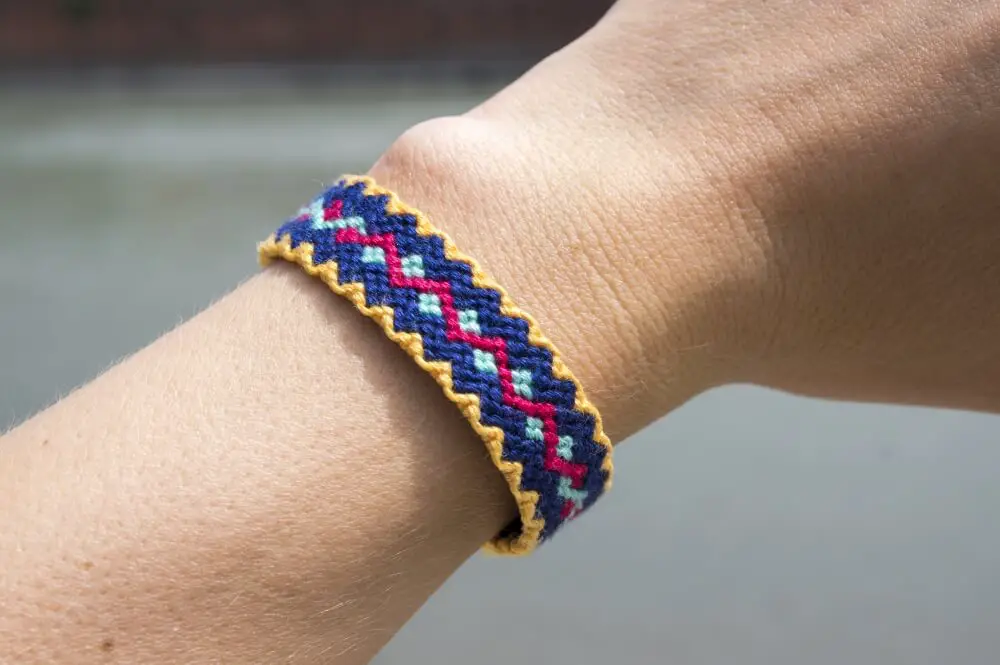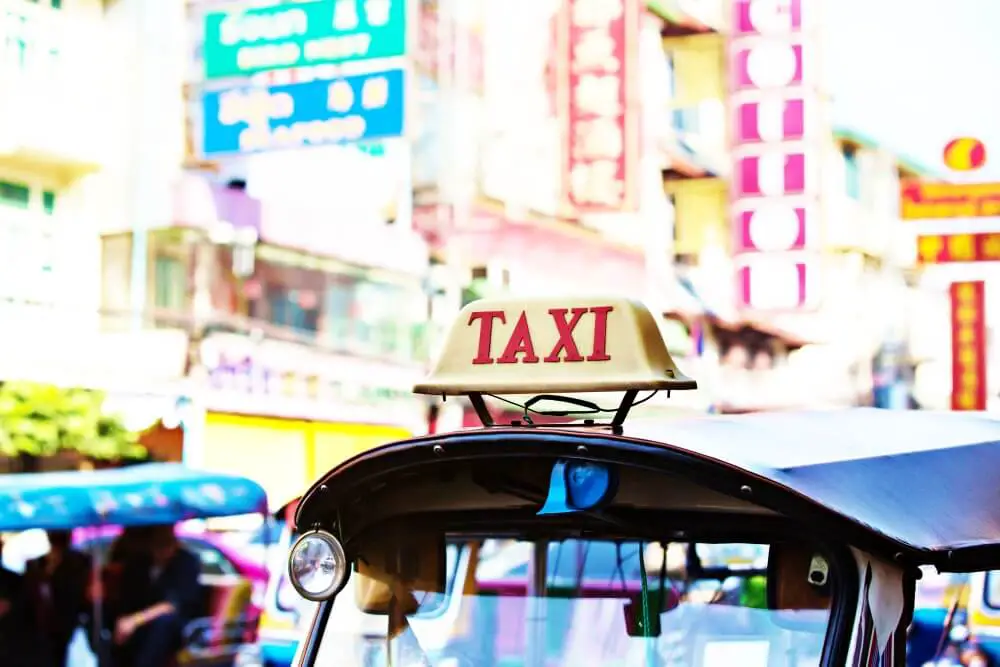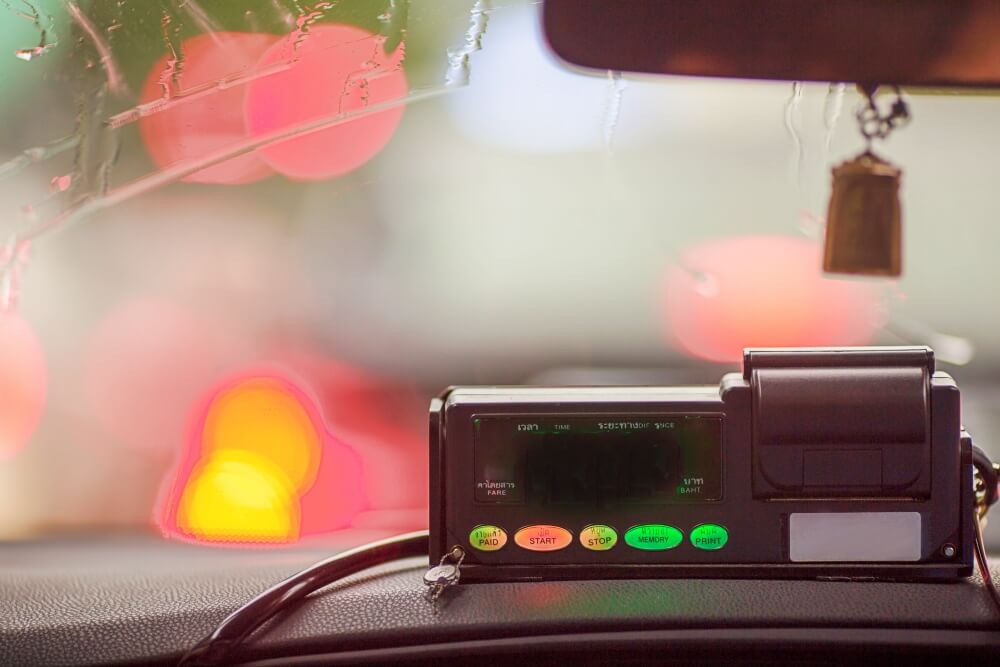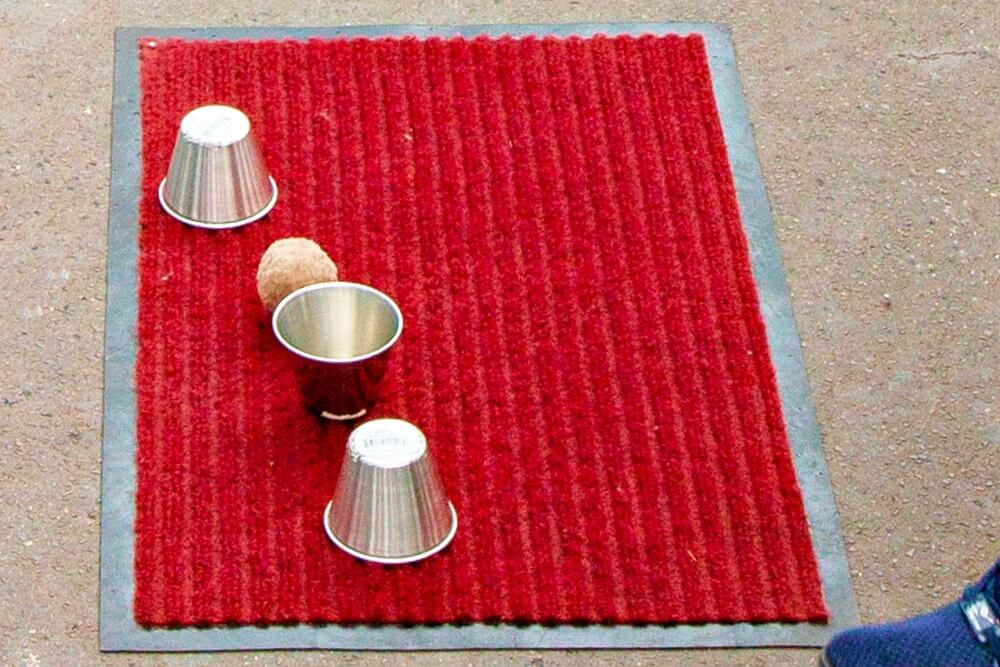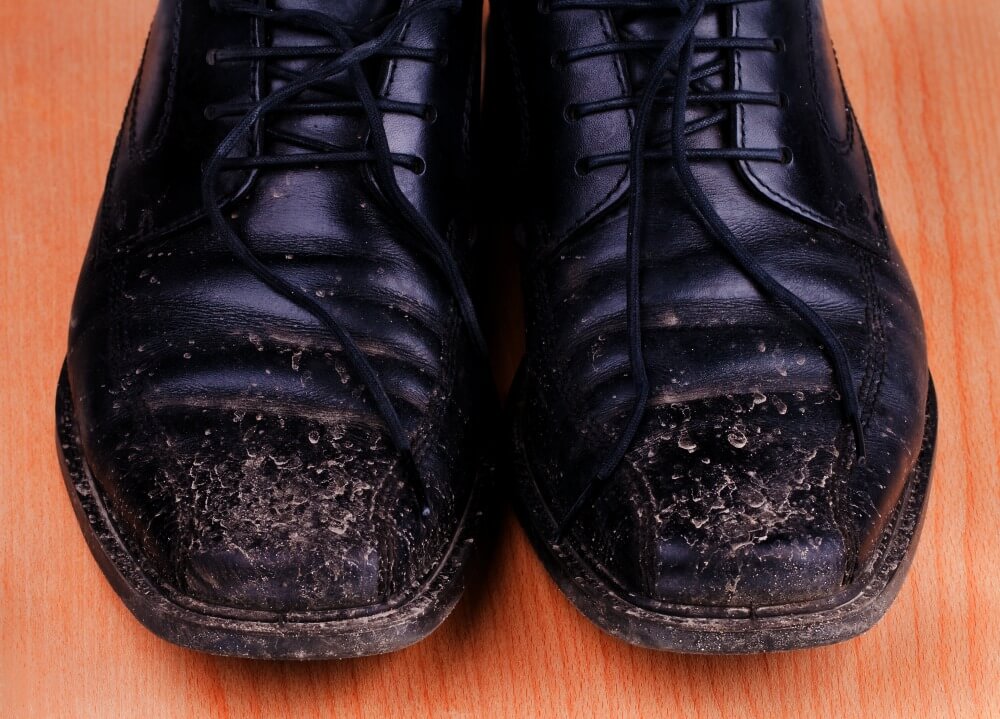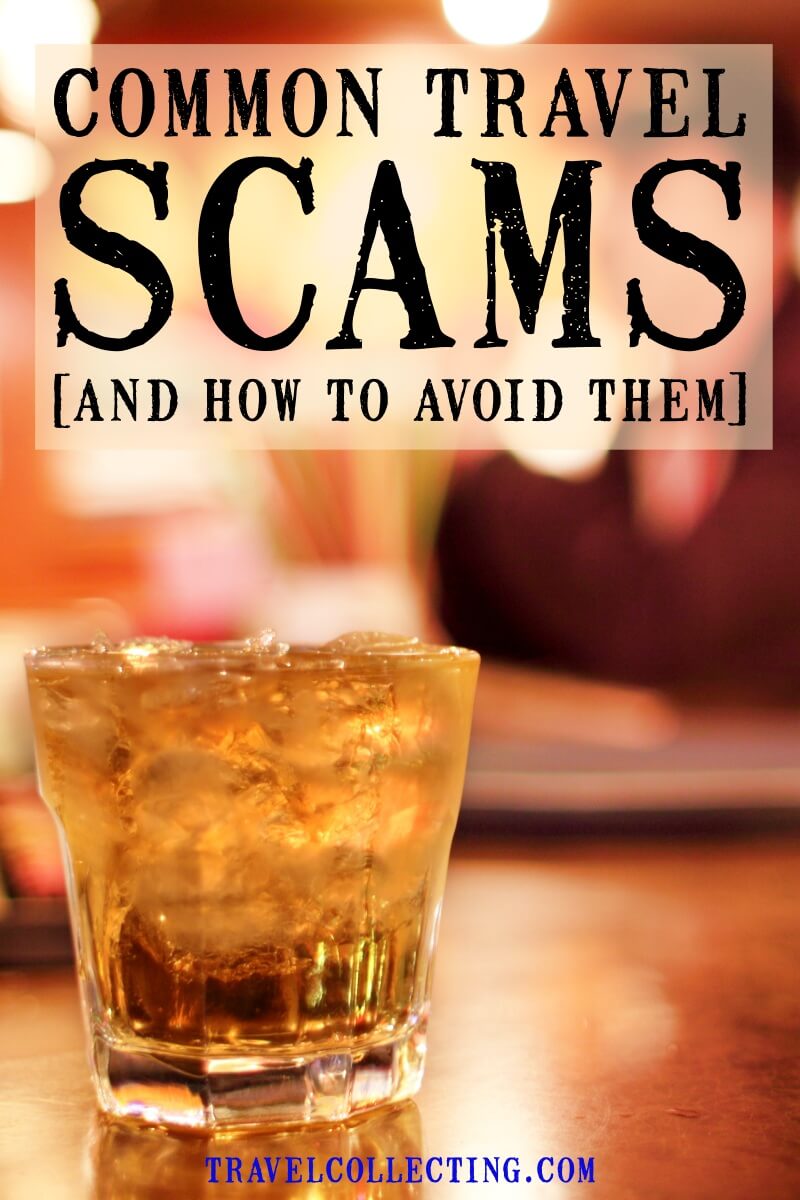I was the victim of a scam on the second day of my first international trip ever! I lost $100 in the scam, and felt like a total fool. When I got back to the hostel, I saw, front and center on a notice board, a warning about the exact scam I just fallen for!
Knowing the most common travel scams to avoid in advance definitely helps you identify that you someone is trying to scam you before it is too late. Over the course of travelling to 80 countries, I have seen many scams.
I’ve fallen victim to a few myself; I’ve seen fellow travelers fall for others; and there have many other scams that people have tried on me but I have been able to avoid because I knew what was happening.
To help you from falling victim to the most common scams, here is a list of the top travel scams to watch out for and how to avoid being scammed.
1. The Special Bar/ Restaurant/ Shop Scam
This is the scam that I fell for on my second day abroad.
THE SCAM
Someone approaches you. They may ask you the time in English – this is a common method to see if you speak English. Then they start to build your trust. Guess what? They ask where you are from and lo and behold, they have a cousin who lives in the same town as you. This is a common way to start building your trust. I fell for both of these.
Then they invite you back to their bar (my scam) or shop. Sometimes they will ask for help writing a letter, which they need to do back in their shop. Sometimes they have a local bar that they are sure that you would love.
Version 1: At the bar, a woman comes up and sits beside you, making small talk and downing a rapid number of shots. When you are ready to leave, you get an exorbitant bill. This is what happened to me. When I questioned the bill (I had had one beer and the check was for about $100), the response was “drinks for the lady”. A scary looking bouncer happens to be standing nearby. I paid. This one of the common Budapest scams, but happens in many other places too.
Version 2: At the shop, you start getting the hard sell. Watch your wallet too – pickpockets may be nearby.
HOW TO AVOID IT
If someone asks you the time in English, an alarm bell should ring. If someone says they have a cousin (brother, etc.) living in the same town you do, it should be ringing like a four-alarm fire.
If someone asks you to go their bar/ shop, etc. politely refuse.
Subscribe to regular updates with tips for planning, travel inspiration and trip ideas and get instant access to the free PDF of the
Common Travel Scams To Avoid
2. The Special Market Scam
This is a variation on the previous scam. It is one of the top 10 travel scams in Morocco, but also happens elsewhere.
THE SCAM
You are walking down the street when someone approaches you and claims that there is a special market nearby. They may tell you that the regular market is closed today. Or it may be a special Berber market that is just in town for one day a month or year. You follow them down a quiet street to get to the market.
Version 1: They take you to a (usually lesser) market, and you get the hard sell to buy something. If you buy something, the price will be inflated, as the ‘guide’ earns a commission. If you don’t buy something, the ‘guide’ can turn nasty and demand money. This happened to me in Morocco. I went by bus to a special local market (small and inferior), and when it was obvious that I didn’t intend to buy anything, the ‘guide’ pulled a knife and demanded I give him money.
Version 2: There is no market, but when you are in a quiet part of the street, you are surrounded by youths who demand money.
HOW TO AVOID IT
I fell for this the first time I was in Morocco. The second time around, I knew better.
Don’t go with strangers anywhere! If someone says to you that there is a special market, tell them, “I know. I went there yesterday and it was great”, then move on!
3. The Unofficial Guides Scam
This is another variation on the ‘guides’ scam. This is one of the common Chinese scams, but is common in many other countries too.
THE SCAM
Someone approaches you and offers to be your guide for free (or a minimal fee). Often it is because they “just want to practice (their) English”.
Version 1: They take you on a tour that is usually low quality, then demand a fee or a high tip at the end of the tour.
Version 2: The same as for the “special market”, the tour includes visiting a lot of shops. If you buy something, you will pay inflated prices because the guide earns a commission on everything you buy.
HOW TO AVOID IT
Never go anywhere with a guide unless they have provided verifiable proof that they are an official guide. Find out from your hotel or from the tourist police or tourist office how to verify that a guide is official.
4. The “Official” Tourist Office Scam
This one is one of the top 10 scams in India and is also one of the common China tourist scams.
THE SCAM
There is an office that claims to be the “Official” Tourist Office. You go into the office and book a tour or transportation.
Version 1: When you go there, they will encourage you to book tours that, unbeknownst to you, have inflated prices, and/ or the tour is of very low quality.
Version 2: They will charge you for a tour, hotel or transportation ticket in another city that you are going to visit but they don’t actually book anything. When you get there and discover that you paid for something that doesn’t exist, it is impossible to get hold of them, of course, and you aren’t in the same city anymore, so you can’t go back to their office.
HOW TO AVOID IT
Don’t buy or book anything from an agency or office unless you have verified that they are reputable. Look online, read reviews, and check with your hotel.
5. The 0% Commission Scam
One of the most common tourist scams in Europe, this one is simple.
THE SCAM
A bureau de change (money exchange office) will offer zero % commission on money exchanges. You have recently arrived in the country and are not sure what the exchange rate should be. You see 0% commission and think you are getting a great deal. You are not. It is true that there is no commission, but the exchange rate is terrible.
HOW TO AVOID IT
It is often better to pay a commission and get a better rate. Always find out what the exchange rate is before you go. You can check exchange rates here.
6. The Fake Notes Scam
THE SCAM
Version 1: This is most common in countries where there is black market. You know there is a black market and don’t want to pay the terrible official exchange rate. Someone approaches you on the street to exchange money. You give them your hard currency and they give you a bundle of local notes. You check the outer notes. They create a sense of urgency that you shouldn’t check everything because there may be police around. Everything seems OK, but you don’t want to get caught, so you put the money away and move on.
When you get back to your hotel and check the money, it turns out that most of the bundle is fake and only the top few notes are genuine.
Version 2: You go to an exchange bureau and get local currency. Either you don’t check it because there is a line behind you, or maybe you just aren’t aware of what the local money looks and feels like. Not all (or maybe none) of the money is real.
Version 3: You get change in a shop or restaurant, and some of the notes are fake. This has happened to me.
HOW TO AVOID IT
The easy solution to the black-market scam is to never exchange money on the back market. If you do, however, do it somewhere where you can check all of the notes and don’t succumb to pressure not to check.
When you exchange money at a booth or office, always check every note.
Every single time you get money back in a shop, restaurant or bar, check each and every note. It helps to know what the real money feels like. Usually fake notes are on a different paper and do feel or look slightly different. If in doubt, refuse to accept it!
7. The Free Bracelet Scam
This is sometimes called the Paris bracelet scam because it is common in Paris. It is also one of the most common Barcelona scams, but happens in many places.
THE SCAM
Someone comes up to you and offers you a free flower, or tries to tie a friendship bracelet around your wrist. They can be quite aggressive – and very quick. Once that flower is in your hand or the bracelet is on your wrist, they will refuse to take it back. When you say “Oh thank you, that’s lovely” (or whatever it is you say), they will then ask for a tip/ money to pay for it. This may be accompanied by a hard-luck story.
HOW TO AVOID IT
Never accept any gifts from strangers – there is almost always a catch. If they manage to get that bracelet on your arm or small gift in your hand and refuse to take it back, drop it on the ground. They will curse you out, but will take it back. Don’t feel bad – you didn’t ask for it, you refused it, you tried to give it back … You did everything you could before dropping it.
8. The Lost Ring Scam
Also called the “gold ring scam”, Paris is known for this one too. In fact, it is probably the most famous of the Paris tourist scams.
THE SCAM
Someone comes up to you and tells you they just found a ring, and shows it to you.
Version 1: They give you the ring. Then they say they are poor and demand money from you, reminding you that they just gave you a valuable ring.
Version 2: In this version, they offer to sell you the ring for a great price. They will show some marking on the ring that “proves” it is valuable gold.
A variation in India has ear cleaners cleaning your ear (with some dodgy looking ear bud) and then “finding’ a valuable gem in your ear.
HOW TO AVOID IT
If someone says they found a ring (or anything else), refuse it!
9. The “Your Hotel is Closed” Scam
This hotel scam is one of the most common China scams, but is common throughout Asia.
THE SCAM
You get in a taxi at the airport, train station or bus station and tell the taxi (or tuk tuk) driver your hotel name. The taxi driver tells you that the hotel has recently closed (or is full), but they know a great hotel and can take you there instead.
The hotel they take you to gives them a commission for bringing you there, so you pay an inflated price.
Your hotel was never full or closed!
This scam is common with hotels, but can also include tourist attractions that you ask to go to. The story is the same – it is closed, but they can take you somewhere better. That somewhere “better” is always worse and more expensive.
HOW TO AVOID IT
Tell the taxi driver your destination before you start driving. If you get this story, get out of the taxi and take another one. If this happens after you have started, insist on going to your hotel. Tell them you don’t care of it is closed or full. It won’t be!
10. The “No Meter” Taxi Scam
This is one of the most popular scams, and is common in many countries, including Thailand and India.
THE SCAM
Version 1: You get in a taxi and the driver tells you the meter is broken. The driver either offers a ridiculously high price or tells you to pay what you want at the end. If you agree to pay at the end without agreeing on a price in advance, the price they will demand you pay will be very high and they will be aggressive if you refuse to pay it.
Version 2: You don’t notice that there is no meter or that the meter looks broken. When you arrive, the taxi driver gives a crazy high price and insists you pay.
Additional variations include charging more than the agreed price saying when you arrive that the higher price is for your bags because the price quoted before you set off was just for you and not your bags, or that the price quoted was for one person only.
Another variation sees you pay with a bill larger than the amount due and the taxi driver doesn’t have any change.
HOW TO AVOID IT
Insist on using meter if there is one. If there isn’t or it is broken, get out of the taxi and try a different one. If there is no option, agree on a price in advance.
Check with your hotel or look the price up on Uber so that you have an idea of what price you should pay. Sometimes hotels won’t want to say, as they won’t want to affect the taxi driver’s ability to get a good price (for them). Ask several people and triangulate – before you need a taxi.
Most airports and train stations have official taxi booths – use them and don’t get taxis from random strangers to the curbside.
If you negotiate a price, always clarify that it is for all people and all bags.
Have exact change so that if the price changes when you arrive, you can give them the agreed-on price, get out and walk away.
11. The Pickpocket Scams
You can get pickpocketed anywhere and should always be mindful of the people around you. Pickpocketing is a common part of other scams, though. This one is one of the common Thai scams.
THE SCAM
In the classic pickpocket scam, a helpful stranger warns you that pickpockets are common in the area and you should watch out. Well, what’s the most common reaction to this warning? You quickly pat your valuables to check that they are still there. Which automatically tells the nearby watching pickpocket exactly where they can find your valuables. Soon after, your wallet or passport disappears.
HOW TO AVOID IT
The easiest way is to keep your valuables safe. Keep your passport and most of your money in the hotel safe or locked securely in your bags. The valuables you have with you, keep in a money belt under your clothing, not in a pocket that is easily picked.
If someone warns you of pickpockets, ignore your natural reaction to check if your valuables are safe – if they are in a hidden money belt, they will be.
12. The Helpful Stranger Scam
This scam is another case of a helpful stranger who will help separate you from your money or camera.
THE SCAM
In this scam, someone offers to help take your photo with your camera or phone, or to help you navigate a local ATM machine. As soon as you give them your phone, camera or bank card, they run off with it, quickly disappearing into the crowd.
HOW TO AVOID IT
If you see someone taking a picture of a fellow tourist, don’t assume they are friendly. Never give your phone or camera to a stranger – you may hate selfie sticks, but they are better than losing your camera. Never ever give your bank card to a stranger!
13. The Fake Credit Card Charges Scam
This is one of the popular Vietnam scams, but happens elsewhere too.
THE SCAM
You buy something and pay with a credit card. The shop assistant takes your card into the back room to use their credit card machine. They come back, you sign the slip and get your credit card back and go home happy. You are less happy when you get your next credit card statement and discover that (often multiple) other charges that have been made on your credit card. When the assistant was in the back room, they made a copy of your credit card and then proceeded to rack up illegitimate charges on your card.
HOW TO AVOID IT
Don’t let credit card out of sight. If a shop assistant insists that they need to go into a back room to charge your card, go with them. If they won’t let you, get your card and leave without buying anything. It is better to not buy something than to be the victim of a credit card scam.
14. The Card Scanner Scam
THE SCAM
This is another scam involving your card – this time your ATM card. You use an ATM machine and get cash. Unbeknownst to you, you card has gone through a scanning machine and the information has been stolen off it. This is then used to clean out your bank account.
Note that the scanner can also be attached to the door in situations where you need to scan your card to get into a small room that contains the ATM machines.
HOW TO AVOID IT
This one can be hard to spot, so take some general precautions. Of course, if you see something that looks weird near the door of the ATM lobby or near or on the ATM machine, move on and use a different bank. Generally, use ATMs at reputable banks to minimize your chances of this happening.
An added note: it could happen that a mugger is lurking around an ATM and when you leave fully cashed up, you get mugged. Avoid ATMs that are in isolated areas, be careful of pickpockets after using an ATM and don’t take too much money out at a time.
15. The Old Switcheroo Scam
This one is another of the common Thailand scams.
THE SCAM
You buy something, often something expensive. While they are wrapping it up for you, it gets switched for a similar item of lesser quality.
HOW TO AVOID IT
After you have paid for something, don’t let it out of your sight. Similar to the credit card scam above, if the shop assistant insists in taking your new purchase into a back room to wrap it up, insists that you go with them. Follow them even if they say you can’t.
16. The Three Cups and a Ball Game Scam
This is one of the most well-known scams. You’ve probably seen them set up on the sidewalk pretty much anywhere around the world, though it has a reputation as one of the Rome scams.
THE SCAM
There are three cups and one ball. The scammer puts the ball under one of the cups, moves the cups around and then you guess which cup has the ball under it. At first, it’s easy and you win money. Then either you are being pickpocketed while you are distracted, or you get paid out with fake money. Or you bet and then after some easy wins to start, you start to lose money big time.
HOW TO AVOID IT
Don’t play. Simple. Don’t watch either. Chances are there are pickpockets around. When you see this in the distance, keep walking.
17. The Poo on Your Shoe Scam
One of the biggest scams in India, this is common in many countries, and has many variations of the same theme.
THE SCAM
In the classic version, someone throws faeces on your shoe or shirt. A variation is ketchup on your shirt.
- Version 1: A friendly stranger comes up and tries to clean it off your shoes or shirt. This is all a distraction. Their accomplice will be carefully pickpocketing you while you are focused on them helping you clean up. A variation sees the helpful stranger taking your bag off so that they can clean you better, then their accomplice steals your unattended bag.
- Version 2: You will be directed to a nearby shoe cleaner, who will charge you an inflated fee to clean your shoes.
There are many variations, all focused on distracting you. Common variations include:
- bumping into you
- dropping papers that you help them pick up
- asking you to hold their baby or even tossing a baby to you (one of the common tourist scams in Italy)
- throwing a cat at you
- an elderly person falling down, who you help (one of the common Brazil scams
- someone dropping a wallet, which you pick up and then they accuse you of stealing the contents.
All of these are ways to distract you.
HOW TO AVOID IT
If any of these things happen, refuse help and refuse to help. It may seem callous, but there is a very big chance that it is a scam.
18. The “Your Rented Bicycle is Damaged” Scam
This is one of the common Mexico scams, and is also common in Vietnam.
THE SCAM
You rent a bicycle or moped, and then when you return it at the end of the day, you are falsely accused of damaging it. Usually the damage existed beforehand, but you didn’t notice it. It can happen that they send someone to damage it while you have it during the day.
HOW TO AVOID IT
Always check a bike or moped very carefully before you rent it and take photos of it from all angles. Make sure any damage or scratches are documented and you keep a copy of the documentation. Make sure there is a signed agreement about any damages.
Keep an eye on the bike at all times throughout the day so someone can’t damage it while you aren’t looking.
19. The Bogus Fee or Fine Scam
Another scam involving fakery, this is one of the common African scams. It also happens in Central and South America and even parts of Asia. This has happened to me on several occasions.
THE SCAM
This often happens at border crossings or police checkpoints. The immigration official or police officer, who typically gets paid very little and can therefore sometimes seek to supplement their incoming by hustling foreign travelers, will charge you a fee that you know nothing about, or some kind of fine for something you didn’t do (or something that seems totally implausible – because it is).
HOW TO AVOID IT
This one can be hard to avoid sometimes. The best tactic is to always ask for a receipt and refuse to pay until you see a receipt. If the charge is legitimate, they will usually be able to provide an official receipt. Sometimes there is no way around it, but I have found asking for a receipt has worked several times and miraculously, I don’t need to pay the fee or fine after all.
20. The Fake Police Officers Scam
THE SCAM
This is somewhat similar, but in this scam, the police officers are not real. A common scenario is: a traveler buys drugs, then a short time later, a police officer comes up to them and searches them, finds the drugs they just bought and charges them a cash “fine” instead of arresting them. The police officer is actually an accomplice of the drug dealer and is not a real police officer.
Other versions see a fake police officer make up some bogus offense that they claim you just committed and fine you. If you pay in cash, they won’t arrest you and you won’t need to go to jail.
HOW TO AVOID IT
Don’t buy drugs. That one is easy.
If a police officer comes up to you and says you did something wrong, ask to see proof. If they ask you to pay a cash fine, tell them you will need to go to the police station and get a receipt. This will usually scare them off.
Subscribe to regular updates with tips for planning, travel inspiration and trip ideas and get instant access to the free PDF of the
Common Travel Scams To Avoid
They sound scary, I know, but don’t let these scams scare you from traveling! You can avoid them all by being aware of them and then exercising basic caution. Don’t be paranoid, but be careful.
Do you know of other scams? Let me know in the comments below.
If you found this post helpful, please share the love and Pin it!
- Learn from my mistakes and read about 13 mistakes NOT to make when you travel
- Need help planning your trip. Read my handy Trip Planner
- If you fall victim to scam, you will be very glad you have Travel Insurance – read all about Travel Insurance here
- See all of my trip planning resources available
About the author

James Ian has traveled to 83 countries and all 7 continents. He is passionate about experiential travel, i.e. meaningful travel that actively engages with the environment and culture. He helps people have similar experiences that involve active participation in activities and festivals; engaging with the local food and handicrafts through lessons and food tours; and interacting positively with environment by hiking, riding, rowing, diving and low/no impact animal encounters.
Travel Collecting is a participant in the Amazon.com Services LLC Associates Program. As an Amazon Associate I earn from qualifying purchases.



